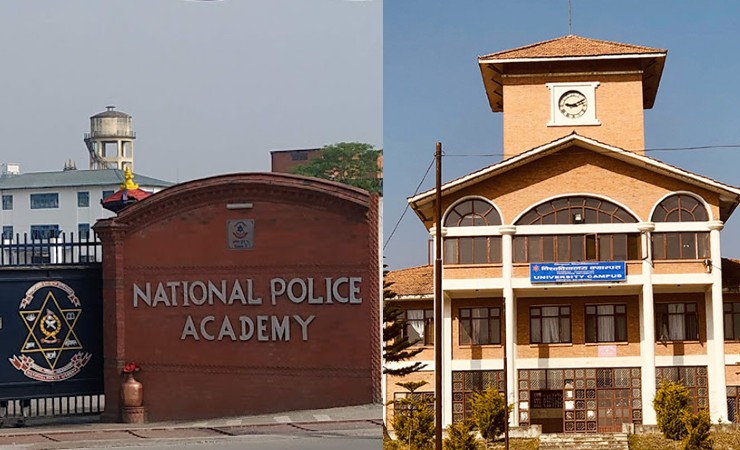Kathmandu: In a significant development for law enforcement education, the Nepal Police Academy and Tribhuvan University (TU) have formalized a partnership through a memorandum of understanding (MOU) signed on Friday at the police headquarters. This agreement marks the introduction of a Masters in Police Sciences (MPS) program in Nepal.
The MOU was signed by Inspector General of Police (IGP) Basanta Bahadur Kunwar and Prof. Dr. Dilliraj Sharma, Dean of TU’s Management Faculty. The program aims to enhance the professional development and leadership skills of senior police officers, including Inspectors and Deputy Superintendents of Police (DSPs), who will be eligible to apply.
During the signing ceremony, IGP Kunwar emphasized the program’s potential to elevate the capabilities of police officers.
“This initiative is designed to support the growth of skilled and effective personnel, in line with contemporary advancements both nationally and internationally,” Kunwar stated. “We anticipate that this program will foster research, analysis, strategy, and planning skills crucial for the modernization and strengthening of the Nepal Police.”
The introduction of the MPS comes amid discussions regarding the future of the Post Graduate Diploma in Police Sciences (PGDPS), a program previously co-managed by the Nepal Police and TU. According to Deputy Inspector General (DIG) Dan Bahadur Karki, the PGDPS has become somewhat redundant for promotion purposes.
“Many Inspector-level officers already hold undergraduate degrees, making a higher-level program like the MPS more relevant for further advancement,” Karki told Republica. He added that a review with TU will be conducted to determine if the PGDPS should be discontinued.
DIG Karki noted that the new MPS program will provide officers with essential command-level leadership skills necessary for higher ranks. “Developing these skills while remaining in service will be crucial for career progression and effective leadership,” he said.
